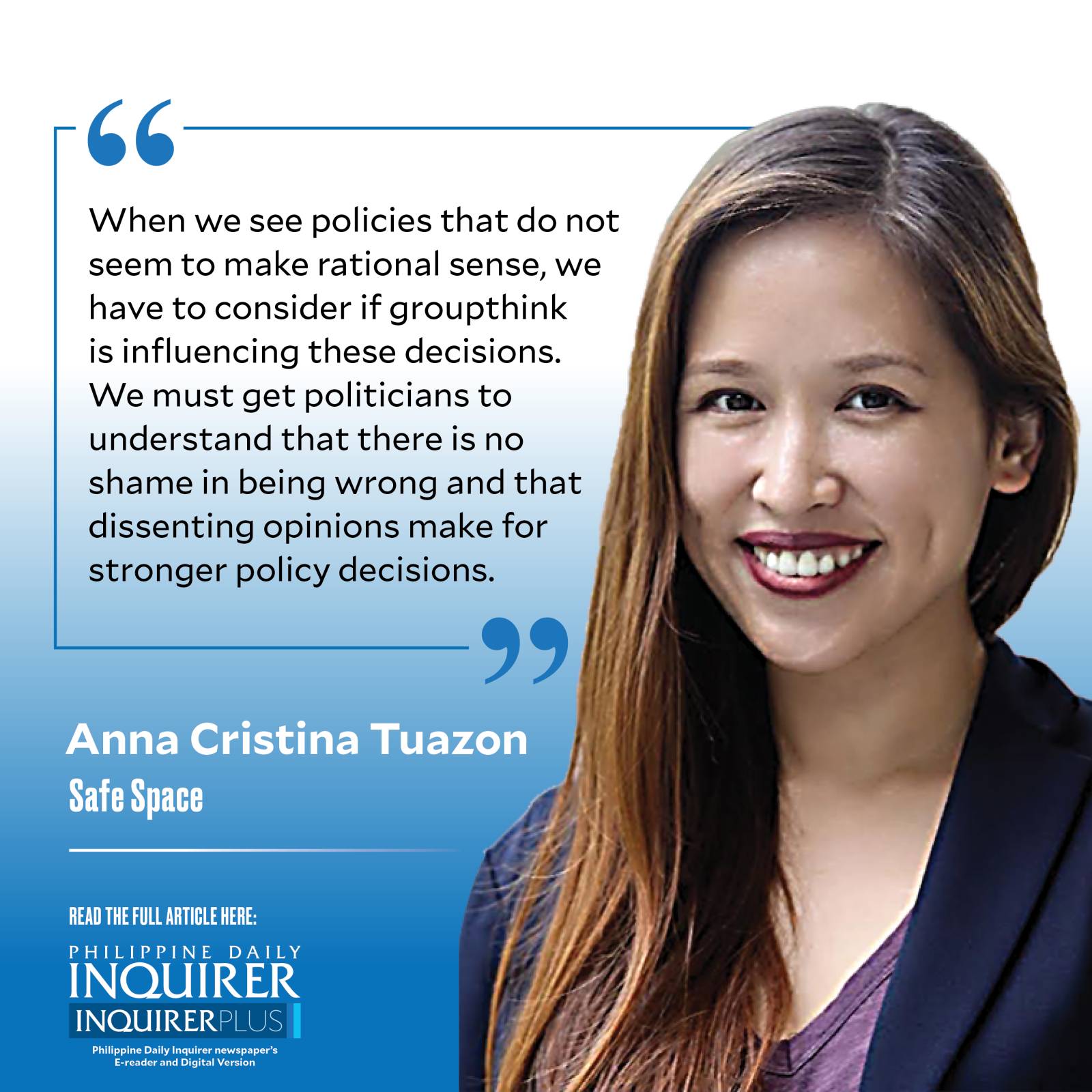Is groupthink behind the rice price ceiling?
I am surprised that some government officials are surprised that capping the price of rice has unintended consequences.
When the President issued Executive Order No. 39 mandating a price ceiling well below market rate at P41 a kilo for regular-milled rice and P45 for well-milled rice, everyone already warned that it would only lead to problems. Rarely do traders, retailers, consumers, and experts agree on any one thing but, this time, they agree that such a ceiling cap will make things worse for everyone. Vendors, especially small retailers, will be operating at a loss. Farmers will have to contend with drastically lowered farmgate prices. Consumers will face a rice shortage as supplies run dry. Who wins in a price ceiling? Big traders who can afford to hoard and wait for a better price—the same ones who have caused the rising prices to begin with. Importers of premium rice will also win as theirs will eventually become the only rice available.
Article continues after this advertisementI watched the news on Tuesday when the order was first implemented to see that numerous rice vendors have opted to close shop rather than sell at a loss. This led to consumers falling in line with the few places that do sell. And this is only on the first day! With vendors refusing to buy more stock until the price becomes sustainable, we should expect to see worse and worse lines and markets ultimately running out of rice to sell. Various government agencies are scrambling now to put together billions of pesos worth of relief for affected vendors, asking citizens for patience as they try to distribute relief in the next week.
The government is not in short supply of competent economists and advisers. They should’ve known that setting a price cap without a definite end date would only result in chaos. What made them commit such a blunder that even Economics 101 students would know to avoid?
The only rational reason is that they weren’t using economics when they set this policy in place. The only rational reason for economists in government to have endorsed this policy is that they were driven by groupthink. Groupthink is a psychological concept where a group, in desiring to conform or to avoid conflict, ends up making irrational—and disastrous—decisions. Groupthink is more likely to happen when people think alike and where dissent or opposing beliefs are discouraged. Groupthink is also more likely to occur when one member dominates the conversation to the point that the other members become merely “yes” men—people who think that all they can do is agree and support their leader’s decision.
Article continues after this advertisementHow can groupthink be avoided? By instituting certain rules in meetings such as making sure that there is at least one dissenting or opposing opinion. Some groups are so naturally harmonious that they would have to assign one member to play “devil’s advocate” during the session just so they can account for other scenarios they have not considered. Diversity in group membership also decreases the likelihood of groupthink. In politics, this is where the opposition or minority becomes vital. A government without opposition is rife with groupthink. A healthy and active opposition party ensures that the government comes up with balanced and rationally sound decisions. If the opposition has a negligible influence in hearings and sessions—especially where minority voices are shut out—then decisions are likely to be railroaded and the likelihood of disastrous consequences goes up.
If a meeting does have a leader whose power skews the group into groupthink—think of a sitting president heading a meeting with Department of Agriculture officials—then it is that leader’s responsibility to ensure that his voice is not the only one that prevails. He must encourage genuine brainstorming and divergent thinking. If anything, he must learn to listen more to those who are skeptical of his ideas. People who only agree with you are not useful in generating ideas and solutions. Disagreements can be healthy; this is at least a sign that groupthink is not in play. Dismissing someone’s opposing opinion as mere jealousy, pettiness, or vindictiveness can be dangerous as it means you are falling prey to your own “yes” men. This further distorts your view of the problem which will hamper your ability to craft solutions.
When we see policies that do not seem to make rational sense, we have to consider if groupthink is influencing these decisions. We must get politicians to understand that there is no shame in being wrong and that dissenting opinions make for stronger policy decisions. Say yes to sustainably affordable rice, not to “yes” men.
—————-

















